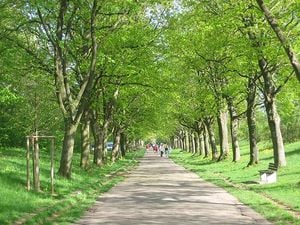
 Facing the dual threat of climate change and human disturbance, Mumbai – and the world – should listen to its fishing communities, The Conversation (Oct 19, 2022)
Facing the dual threat of climate change and human disturbance, Mumbai – and the world – should listen to its fishing communities, The Conversation (Oct 19, 2022)
Mumbai's growth in population, caused mainly by the migration of laborers from across India, means Greater Mumbai is now is the largest city in India with a population of 16.4 million (2001). Mumbai is one of the densest cities in the world, 48,215 persons per km² and 16,082 per km² in suburban areas. Alternative farming methods have emerged as a response to scarcity of land, water, and economic resources employed in UPA.
Community involvement[edit | edit source]
- A participatory approach to initiating transformative actions from the bottom-up, bombay61.blogspot.com, November 11, 2019
Biodiversity[edit | edit source]
- Conservation Action Trust, registered non-profit organization formed to protect the environment, particularly forests and wildlife. added 08:53, 20 October 2022 (UTC)
Food activism[edit | edit source]
Pioneering urban agriculture efforts in Mumbai include:

Dr. Doshi, of the large densely packed city Mumbai, India, has developed food production techniques for his context.
His city garden methods are appropriate to apply in reduced spaces as terraces and balconies, even on civil construction walls, and for not requiring big investments in capital or long hours of work. His farming practice is purely organic and is mainly directed to domestic consumption. His gardening tools are composed of materials available in the local environment: sugarcane waste, polyethylene bags, tires, containers and cylinders, and soil. The containers and bags (open at both ends) are filled with the sugarcane stalks, compost, and garden soil, which make possible the use of minimal quantity of water if compared to open fields.
Dr. Doshi states that solar energy can replace soil in cities.[verification needed] He also recommends the idea of chainplanting, or growing plants in intervals and in small quantities rather than at once and in large amounts. He has grown different types of fruit such as mangos, figs, guavas, bananas, and sugarcane stalks in his terrace of 120 m2 (1200 sq ft) in Bandra. The concept of city farming developed by Dr. Doshi consumes the entire household's organic waste. He subsequently makes the household self-sufficient in the provision of food: 5kg of fruits and vegetables are produced daily for 300 days a year.
Urban sustainability[edit | edit source]
- Bombay 61, "innovative and experimental urban solutions think tank.It facilitates urban design & research projects with public participation as the key idea, creates and has been deeply involved in developing experiential architecture & design projects since 2013." added 08:53, 20 October 2022 (UTC)